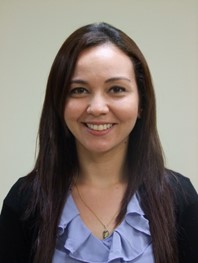Blog
GDL Talks – Daring to Change: Alternative Ideas to Address Current Global Challenges
By Rocío Cañas
In a globalised world, issues like climate change, gender and social and racial inequalities transgress boundaries; humanitarian and political crises affect people in different parts of the world alike; and pandemics cannot be easily prevented from spreading around the globe. In order to deal with such cross-border and global challenges, more inclusive strategies are needed in international cooperation, policy making and diplomacy.
The Global Diplomacy Lab strives to play a part in establishing an international system to deliver positive transformational change. By engaging with the Sustainable Development Goals of the 2030 Agenda, the GDL identifies the intersection of global and local opportunities and challenges in order to address them in an innovative and collaborative way. Relating directly to these matters, the GDL Talks, in the context of the 2020 prE-Summit, delivered key ideas to work towards new ways of undertaking Global Leadership, looked at strategies for innovation in the conduct of Partnerships for Sustainable Goals, and analysed the possibility of including new partners to face global Security threats.
When considering the topic of Global Leadership and the Future of Diplomacy, there is a pressing need to actively search for new ways to relate with the necessities and purposes of communities and to strengthen the connections between people and their leaders, especially during such difficult times. Such an example can be found in countries headed by women leaders and their responses to the current pandemic crisis, deflecting from a stereotyped strong communication style and bringing to the table empathy, compassion and softness as a different way to approach, connect and lead. On a more local level and in order to face these vulnerable and uncertain circumstances, leaders have an imperative to work towards emotional resilience and general awareness to find community and strengthen connection, to take action on things they can control when possible, but also to show preparedness for new challenges. This has to be carried out until strong, inspiring and collaborative guidance becomes the rule and not the exception.
In order to build strong Partnerships for Sustainable Development (SDG 17), it is imperative to surpass the acute crisis of trust among societies that is currently affecting the way we conduct our relations towards each other and undermining confidence in official actors such as international organisations and governments, making it difficult to concur on approaches and address public issues. This suggests that a new and empathetic leadership and different strategies to collaborate are needed, beginning by: questioning traditional models of cooperation between the north and south that seem outdated and inadequate; shifting our focus towards working with new narratives that are inclusive of all partners in international development – this includes the very definition of what development means to different countries; and disrupting partnerships that have perpetuated corruption and economic growth at all costs, damaging our planet.
Finally, regarding concerns like Security: Climate Crises, Migration, Gender and Social Inequalities, and Technology, current global Security threats have made it obvious that there is a problem with the established patterns of thinking: when pondering a global issue only in terms of countries, borders and national narratives, an important dimension is clearly missing. The effects of COVID-19 as a triple-thread phenomenon worldwide, with immense consequences for health, economic and social spheres, are a clear example of this. So it is crucial to start to see everything – the world and its challenges – as a whole, given that threats can no longer be fully addressed by a single country with a solitary answer. It is time that responses to global challenges be planned and executed with a multilateral approach, making sure that everyone has a part to play in a more sustainable future.
Blog entry constructed with the arguments shared in the GDL Talks at the 2020 prE-Summit: Talk on Partnerships for the SDGs by Patrick Mpedzisi and Blair Glencourse; Talk on Leadership by Netta Ahituv and Chris Fowler; and Talk on Security by Shakeel Ahmad Ramay and Gabriela Canales.
About the author:
Rocío Cañas is an international analyst and cooperation officer working in the fields of foreign policy, diplomatic relations, development cooperation and human rights in both the public sector and non-profit organizations internationally.
Published on September 21, 2020.
Photo credit: Rocío Cañas
